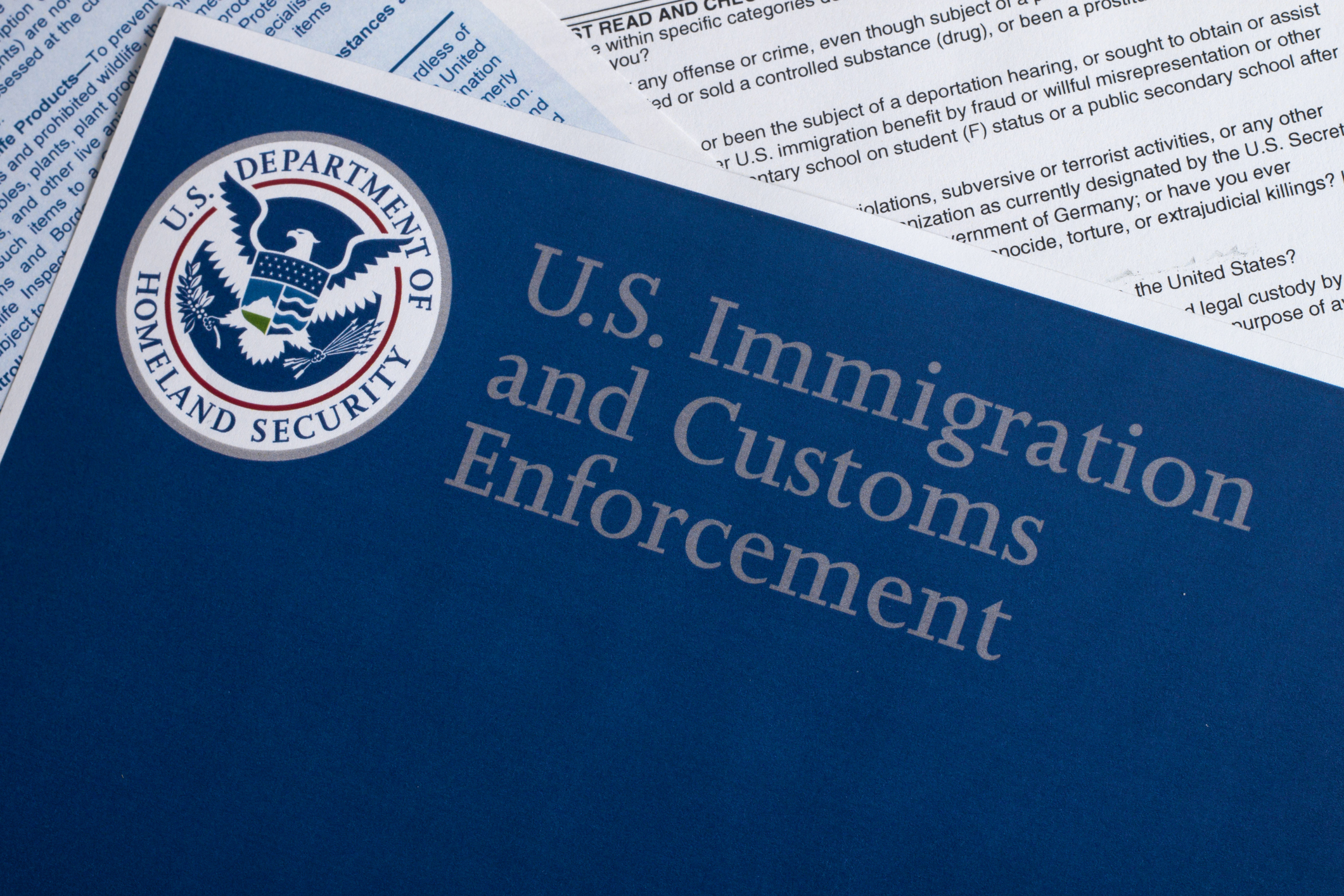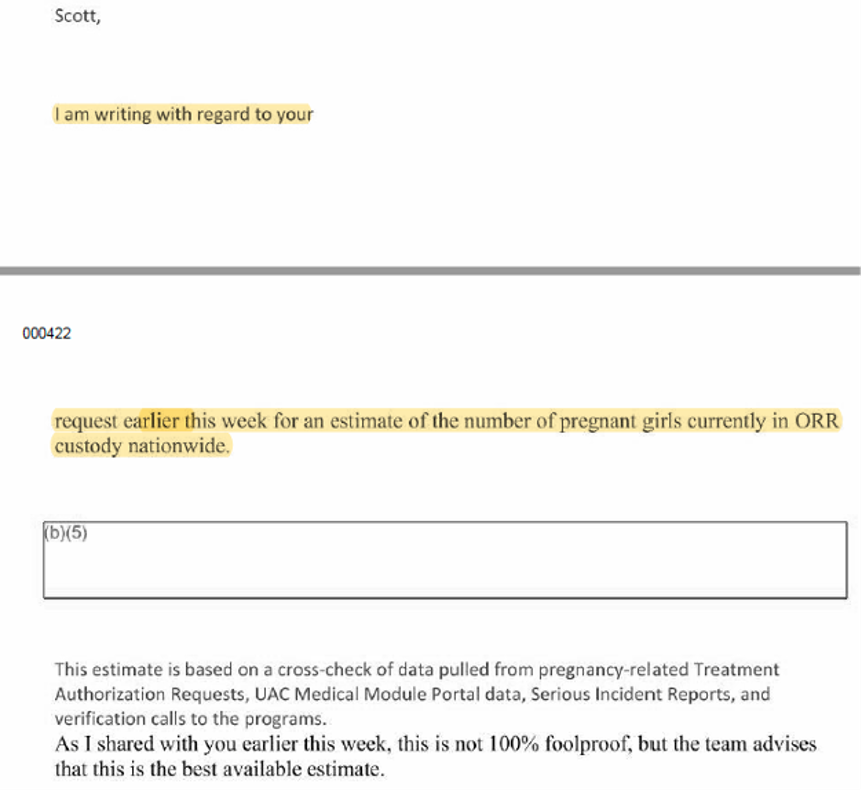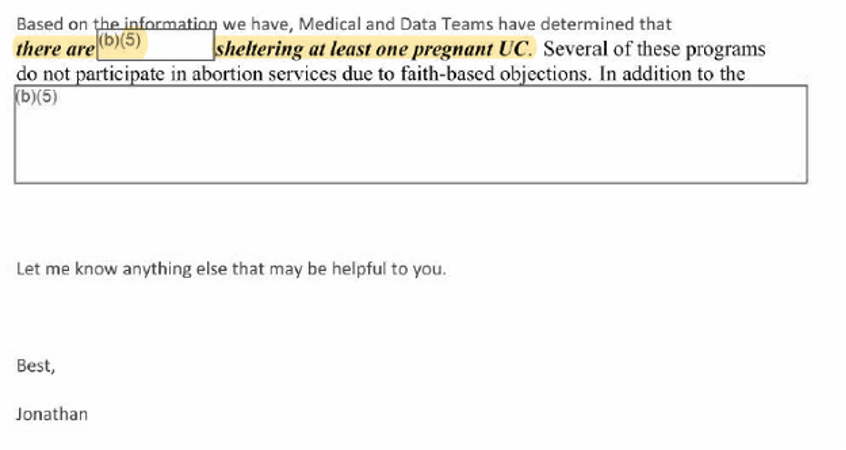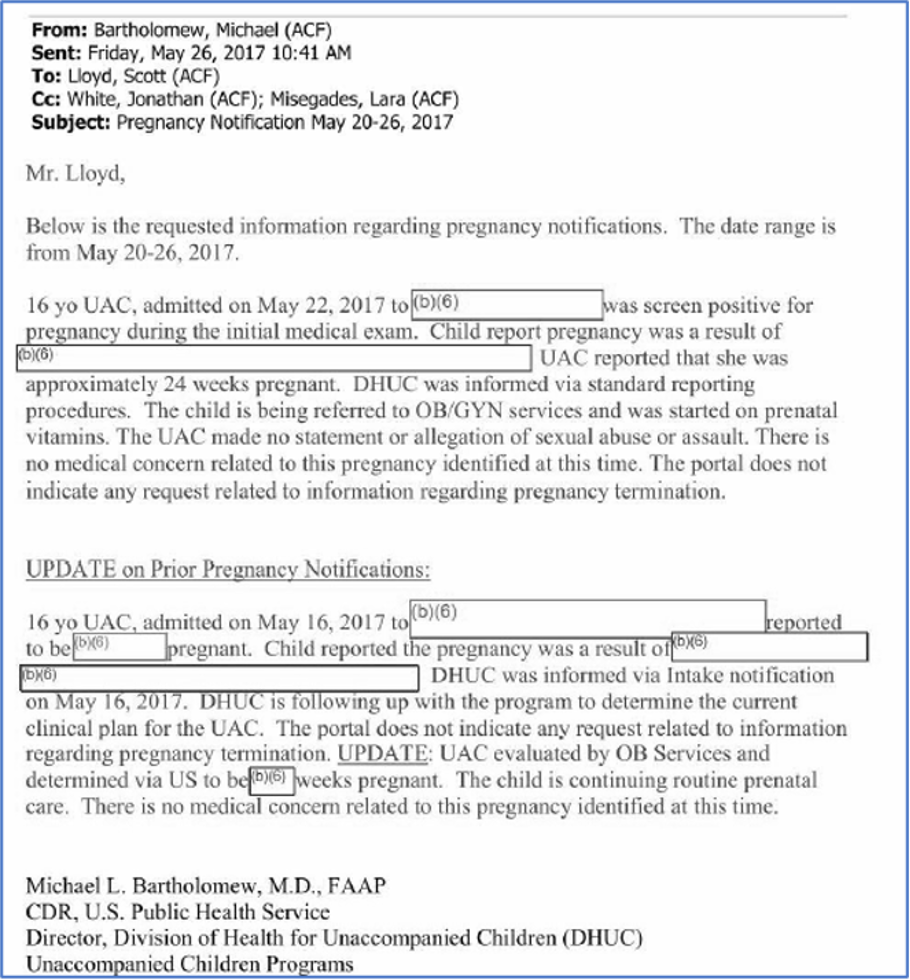
In September, The Intercept broke the story detailing a whistleblower’s complaints against a U.S. Immigration and Customs Enforcement (ICE) detention center in Georgia, including forced sterilization of immigrant women. In a crowded political landscape and media environment, the details of the revelations bear repeating: The whistleblower, Dawn Wooten, who was a nurse at the Irwin County Detention Center (ICDC), spoke out about the high rate of hysterectomies performed on immigrant women in ICE custody at ICDC — without their consent. As accounted by a detained woman in a complaint to the Department of Homeland Security (DHS) filed on behalf of Wooten by legal advocacy groups, “When I met all these women who had had surgeries, I thought this was like an experimental concentration camp. It was like they’re experimenting with our bodies.” Wooten also detailed accounts of how ICDC has failed to protect detainees and staffers alike from COVID-19. “‘This place is not equipped for humans,’ said one detained immigrant at Irwin,” the complaint read.
The accounts of the harm are egregious, but the complaint cannot be dismissed as shocking. Reproductive control of women of color at the hands of the U.S. government is part of a broader pattern. This blog post will detail why the atrocities at ICDC cannot be dismissed as a “bad apples” situation — as evidenced by our history of reproductive control of Black people, Puerto Ricans, Native Americans, Latinxs and asylum-seeking immigrants and incarcerated people. This post will also dig into the Trump administration’s different forms of reproductive control exercised across federal agencies beyond the DHS, including the Department of Health and Human Services (HHS), and how such policies have been exacerbated by the administration’s expansion of privately owned prisons and detention centers.
A Cruel History of Reproductive Control of Women of Color in the United States
Communities of color know firsthand that state-sanctioned reproductive control and coercion is common in the United States. As SisterSong responded, “The forced sterilization of women in ICE detention is part of a long history of policies and programs inflicting violence and harm upon our families and our bodies to control who gets to have children and who gets to make decisions about their reproduction.” Scholars agree, pointing out that the ICDC news “could be seen as a recent episode in a much longer trajectory of sterilization abuse and reproductive injustice,” as Alexandra Minna Stern, a professor and associate dean at the University of Michigan, told CNN. While communities of color, public health experts, advocates and academics are well-versed in this broader history of reproductive control — specifically, sterilization — of BIPOC people in the United States, school curriculums and the broader public may not be.
As masterfully chronicled by University of Pennsylvania law, sociology and civil rights professor Dorothy Roberts in her book “Killing the Black Body,” there was a proliferation of involuntary sterilization laws on Black and Brown women throughout the 20th century that have only taken different forms in more recent and present history. Beginning in 1907 in Indiana, numerous state legislatures passed mandatory sterilization laws for people considered too “feeble-minded” to procreate. Twenty years later, at which point a dozen state-level laws of this type were on the books, the Supreme Court upheld a state’s right to forcibly sterilize in Buck v. Bell. These types of eugenics laws expanded following the SCOTUS decision until 30 states had them in place; disproportionately targeting people of color and low-income people, they accounted for as many as 70,000 forced sterilizations. These laws later became models for Nazi Germany. With the civil rights movement in the 1960s, backlash led to many of these sterilization laws being repealed — and then, as Roberts writes, a “new, more subtle form of social engineering ensued.” Indeed, most Black women were targeted by not only eugenics laws but also government-funded doctors ostensibly deployed to provide health care. Brandeis University professor of sociology and public policy Thomas M. Shapiro estimates that these cases peaked in the 1970s, rising from around 200,000 in 1970 to 700,000 in 1980. Hospitals not just in the South but throughout the country continued to perform unnecessary hysterectomies on low-income Black women to train residents.
Government-directed and funded sterilizations were not limited to Black women. The Family Planning Services and Population Research Act of 1970 subsidized sterilizations for patients who received health care through the Indian Health Service and Medicaid. These sterilizations, many of which were performed coercively and without patients’ knowledge or consent, are estimated to account for the mass sterilization of anywhere from 25 to 42% of Native American women of childbearing age. The policy was particularly devastating for small tribes. As Dr. Connie Uri stated, “All the pureblood women of the Kaw tribe of Oklahoma have now been sterilized. At the end of the generation the tribe will cease to exist.” This horrifying mass sterilization of Native women came at the heels of what is known as “La Operación” in 1950s and 1960s Puerto Rico — when, with the support of federal funds, nearly one-third of Puerto Rican women of childbearing age were sterilized by 1968 without their consent or knowledge.
The U.S. government has continued to use language barriers to their advantage in coercing and bypassing informed consent of sterilizations. As Wooten chronicled in her recent ICDC complaint, speaking of the Spanish-speaking immigrants in ICE custody receiving hysterectomies, “‘These immigrant women, I don’t think they really, totally, all the way understand this is what’s going to happen depending on who explains it to them.’ Ms. Wooten stated that the sick call nurse tries to communicate with the detained immigrants and speak Spanish to detained immigrants by simply googling Spanish or by asking another detained immigrant to help interpret rather than using the language line as medical staff are supposed to.” Northern Illinois University professor of law Maybell Romero drew parallels between this case and the 1970s sterilizations at the Los Angeles county hospital: “In that case, a whistleblower much like today came forward with evidence that Latinas were being tricked, coerced, and forced into sterilization,” she wrote. “Much like today's case...the women often had little to no grasp of English, leaving them vulnerable to coercion.”
Present-Day Reproductive Control of Asylum-Seeking Migrant Teenagers in HHS’ Care
The recent complaints against the DHS’ ICE cannot be separated from the aforementioned U.S. history of reproductive control more broadly. Nor can it be viewed as an isolated incidence under the present administration, as evidenced by HHS’ Office for Refugee Resettlement’s (ORR’s) efforts to block migrant teens in their custody from abortion access. This is chronicled in the case of Garza v. Hargan, which began in October 2017 with the American Civil Liberties Union (ACLU) filing an emergency lawsuit on behalf of a 17-year-old in ORR’s care who wanted an abortion. The administration fought the courts, which ultimately ruled in Jane Doe’s favor, and the legal battle continued as it became clear that many other teens had been put in the same position by the Trump administration. The director of ORR at the time, Scott Lloyd, maintained that immigrants had no constitutional right to abortion; as chronicled in many public records requests obtained by Equity Forward, Lloyd and his office were personally and intimately involved in controlling the reproductive rights of these girls, including by tracking the periods of those in their care on spreadsheets. Below are emails obtained through Equity Forward public records requests detailing how Lloyd personally requested and received weekly spreadsheets of pregnant teens in ORR care.


[Equity Forward FOIA response, Scott Lloyd Outbox, received 7/23/18]

[Equity Forward FOIA response, Scott Lloyd Outbox, received 7/23/18]
After more than three years, HHS ORR has reportedly changed its policy on immigrant teens’ reproductive health access. ACLU Reproductive Freedom Project Deputy Director Brigitte Amiri said that while the policy change righted a wrong, the health and safety of immigrants in detention under the administration is “still very much at stake.”
Forced Sterilization of Incarcerated People
As referenced above, forced sterilization is most commonly tied with the American eugenics movement, heightened at the cusp of the 20th century. The sordid legacy of stripping away bodily autonomy exists in modern times within the shrouded walls of America’s penal system. California is an example. Between 2006 and 2010, 148 female inmates at just two of the state’s prisons were sterilized by coercion or without their consent. When questioned about the state-funded compensation received for performing the procedures, Dr. James Heinrich, former OB-GYN at California’s Valley State Prison, said, “Over a 10-year period, that isn’t a huge amount of money, compared to what you save in welfare paying for these unwanted children – as they procreated more.” His comments echo the sentiments of the eugenics movement, during which inmates and low-income people were deemed unfit and unwanted by mainstream society.
Heinrich’s comments, steeped in racism, provide context of who is most harmed. It is Black and Brown communities that are most impacted by mass incarceration. It is Black and Brown women who have bravely come out to share their stories of being sterilized while incarcerated. In 2006, Kelli Dillon was the first to sue the California Department of Corrections and Rehabilitation for damages incurred from her state-sanctioned sterilization. Earlier this year, Mileidy Cardentey Fernandez, detained at the Irwin County Detention Center, believed she was getting a D&C procedure but instead got one of her fallopian tubes clipped and tied. The recent whistleblower incident is not isolated — it is the continuation of America’s long legacy of violating reproductive autonomy.
The Trump Administration’s Expansion of Privately Owned Prisons and Detention Centers and Abuse At Facilities Like ICDC
Xenophobic targeting of migrants, refugees, and foreign-born residents has boomed under the Trump administration, providing a path for the private prison industry to capitalize on the hateful political climate. Five days into his presidency, Trump issued an executive order calling for broader application of immigration laws and policies, which resulted in increased arrests and detainments, as well as logistical demands to hold the record-breaking number of detained migrants. An overwhelming majority of ICE detainees are held in detention centers by five private companies — including La Salle Corrections, which runs the Irwin County Detention Center.
La Salle operates across states in the South. When the state of Louisiana began to reduce inmate populations, LaSalle founder Billy McConnell pivoted to migrant detention centers. Contracted by the DHS, his company operates six immigration detention centers in Louisiana. Detainees of LaSalle facilities have cited many instances of abuse, neglect and medical negligence. The private prison industry’s lobbying efforts and campaign donations present a clear picture of the political relationships driving profit from the inhumane treatment of Black and Brown people. It is just more evidence of this administration’s alignment with big business and disinterest in human rights.
Conclusion
Coerced hysterectomies are the most blatant examples of reproductive injustice — an atrocity against human rights. We must not let this story evaporate into our short term memory. It is important to demand increased oversight of ICE and other federal agencies, support the work of watchdog groups and advocacy organizations, and call for an abolishment of institutions and policies that perpetuate reproductive control. As we belatedly come to terms with our past, it is equally important that those of us working within the reproductive rights, health and justice movements come to terms with our own contributions to reproductive injustice. In recent years, Planned Parenthood Federation of America (PPFA) has acknowledged and reckoned with their founder Margaret Sanger’s eugenicist ties, and in July 2020, PPFA ultimately disavowed Sanger. These are steps in the right direction. However, it is so important for each of us to remember that the inequities — inaccessible birth control, inadequate reproductive health care, restrictive abortion policies, transphobic policies and anti-LGBTQ legislation — we advocate against are already the lived reality of so many people incarcerated, detained or otherwise under some form of government control and surveillance.
Research is an integral tool of oversight and change. The interdisciplinary research being done at the Sterilization and Social Justice Lab is a great resource to better understand the history and patterns of forced sterilization in the United States. Recent Freedom of Information Act (FOIA) requests sent by the ACLU and American Oversight will yield insights into the intricacies of reproductive coercion happening within ICE detention facilities or, at the very least, expose the lack of transparency that has allowed these sorts of human rights violations to run rampant. At Equity Forward, we will continue to run research-driven campaigns to hold anti-reproductive health forces at all levels of governance accountable.
Our fight for reproductive freedom and health equity must center the realities of those whose bodies the government has historically and continues to violate, as people behind bars are no less worthy of dignity and respect than those of us reading this article from the comfort of our homes.
Molly Bangs is the director at Equity Forward. She is an advocate, researcher and writer on reproductive health, rights and justice, as well as other human rights. Molly has a strong background in political research, policy and journalism, having previously worked as a researcher at Equity Forward and as an alum of The Century Foundation, The Huffington Post and the New York City Council. Her bylines have appeared in outlets including Truthout, VICE and HuffPost. Molly holds a master's degree in political science from Columbia University.
Ashley Underwood is a research associate at Equity Forward. She is a reproductive justice and public health advocate with an extensive background in working to improve maternal and sexual health outcomes through program implementation and development. Most recently, Ashley worked as a research and program manager at NARAL Pro-Choice Ohio. Ashley holds a master’s degree in public health from Case Western Reserve University.